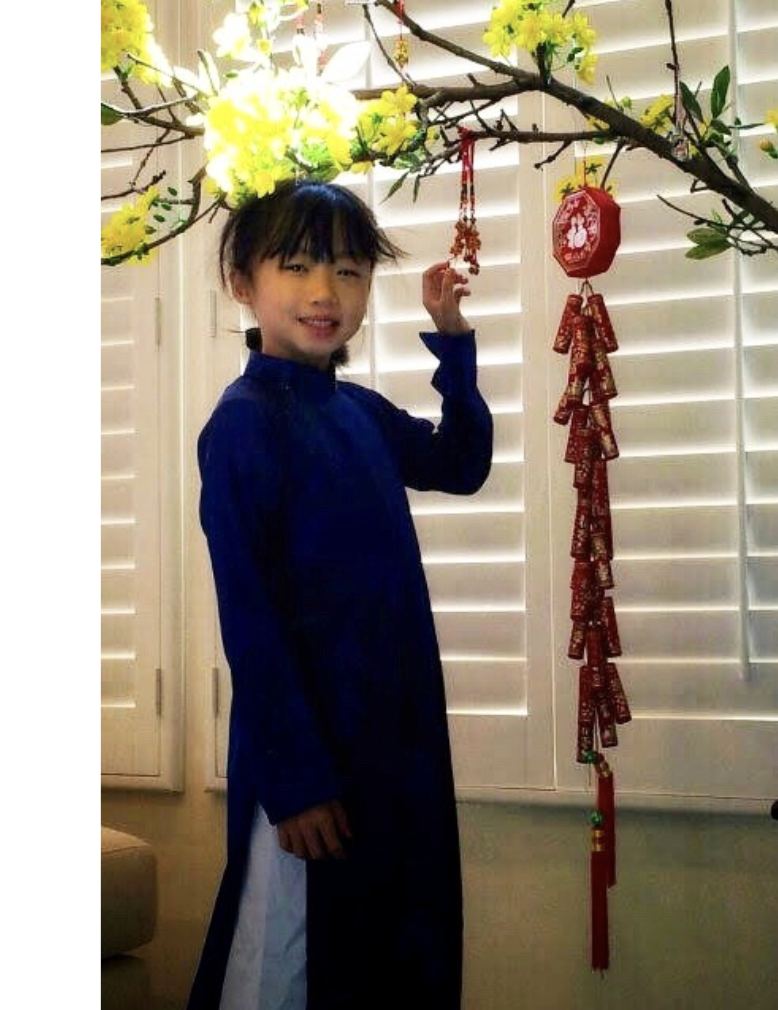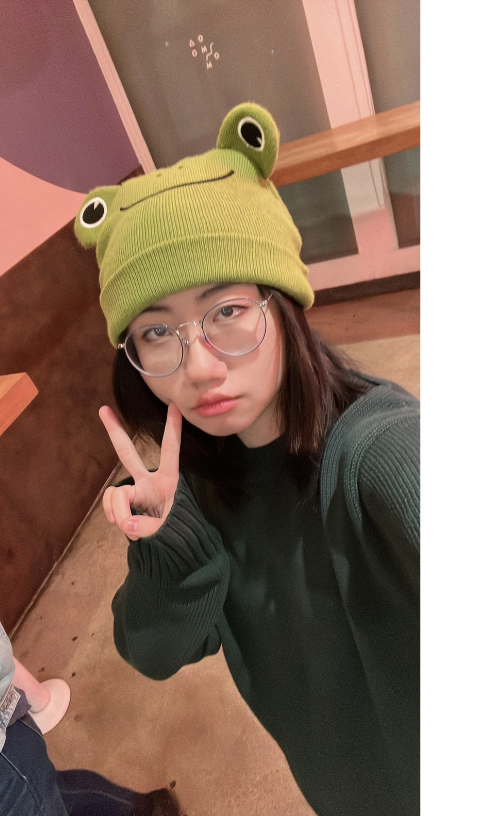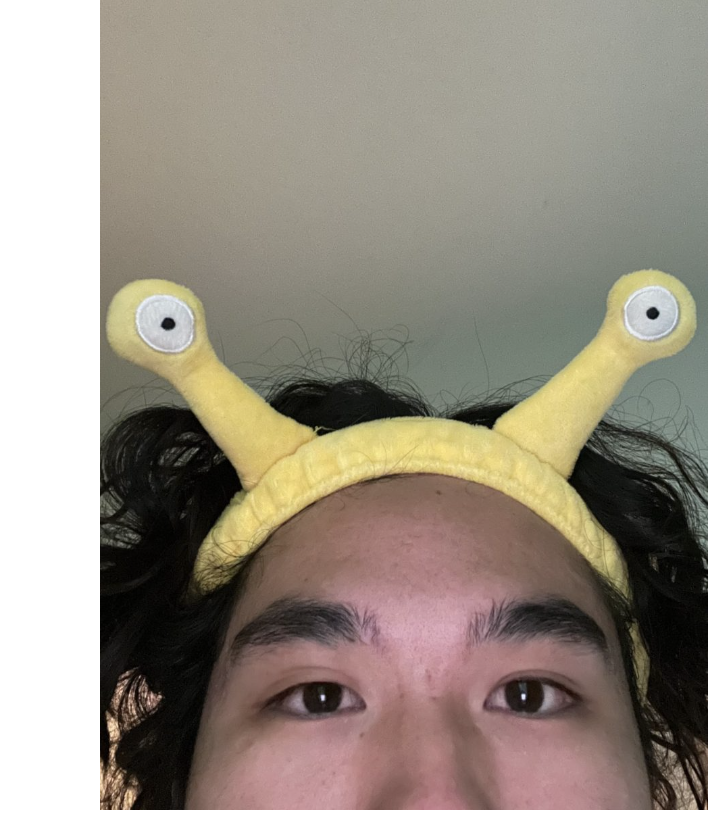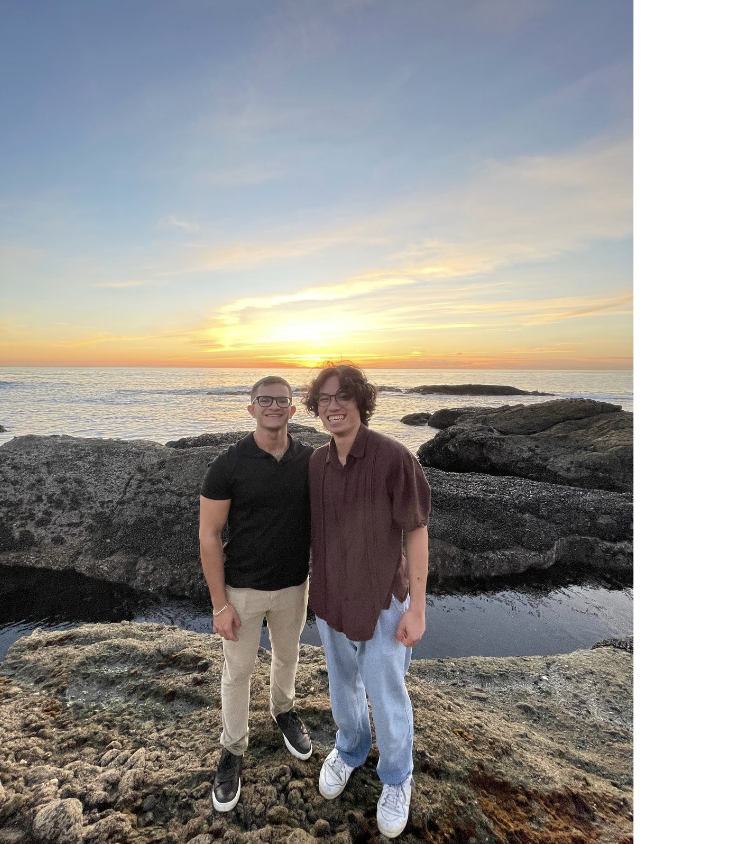Drowning In My Singularity

Far within the depths of my digital gallery of life, is a video from what feels like eons ago. Just shy of two minutes, the grainy footage and bright colors ring brightly with radiant laughter as my mother gently endeavored to rein in my twin brother and me for a Tét New Year’s blessings video to send to family. Dressed up in our silk Áo dài and Áo gấm dyed in rich purple and blues, she encouraged us to speak the words of blessings in Vietnamese, and we, in our boundless energy, echoed her words with innocent enthusiasm. As the camera rolled, my twin brother and I became a whirlwind of joyful chaos, feeding off each other’s exuberance. We stumbled over the language, turning blessings into playful mishaps like “grandma grandpa grandma” and “live long work (life).” Our tiny voices, a symphony of pure delight, filled the air as we chased each other in front of the camera, our antics even taking us to the point of shoving our eager faces into the lens. My mother, the gentle conductor of this lively performance, guided us back on track whenever we intentionally faltered or got caught up in our own mirth.
Looking back, my mother has always done her best to maintain our ties with culture. The grainy footage of a Tét New Year’s blessing video became a symbol of the joy and chaos inherent in the clash between my Vietnamese roots and the American environment that surrounded me. Coming from Los Angeles (LA) with such a diverse diaspora of different cultures unlike my own, cultivated a sort of dissonance as my identity struggled against the tide, threatening to be swept away by the currents of assimilation.

At school, other Vietnamese students resembled rare Topps Chrome Pokémon cards—elusive and hard to come by. No one around me was like me and it frustrated me. I was surrounded by people who couldn’t understand—people who I wanted to be like me but when that proved unattainable, I found myself compelled to adopt their ways. As I grew older, despite my parents’ efforts, following my mother’s patient conducting eventually became no more than an empty performance I expertly performed for the cameras; the disconnect was further amplified when I visited my relatives in the Vietnamese-concentrated Orange County and eventually the motherland itself with my awkward manners and semi-fluent Vietnamese with a slight American accent. I hated it. My bitterness towards my own culture grew, fueled by the desire to conform to a more widely recognized identity, one that mirrored the prevailing narratives around me and my continuing detachment and struggle to relate to and understand my heritage.
As I reflect on these memories, I find myself continually grappling with the intricate tapestry of my identity. The collision of my Vietnamese roots with the American milieu I inhabit has woven a complex narrative within me—a tale of joy, chaos, dissonance, and longing. Yet, amidst the ebbs and flows of this journey, I am confronted with the realization that my quest for self-understanding may not culminate in a definitive conclusion. Instead, it may remain an ever-evolving narrative, a profound exploration of who I am and where I belong. As I navigate the currents of life, I embrace the uncertainty, knowing that the pursuit of my identity is not merely a destination but a perpetual voyage of introspection and growth.
—Elizabeth Ton, Class of 2026: Biomedical Science/Pre-medicine
The Burden of Identity
Sunday mornings were violent in my household. As soon as the iron-fisted decision-maker that was my mother left home, it was up to my father to somehow wrestle me into the car to go to Vietnamese school. Despite a long and hard-fought battle, he always managed to win. Clad in my baby-blue Truong Viet Ngu Hong Bang uniform, I sauntered my way into the back of the class. For four hours, I was lectured on ancient Vietnamese literature, history and culture, most of which admittedly went in one ear as quickly as it left the other.

On weekdays, I attended a small private school, which mostly consisted of international students from Vietnam. Despite being an American school in a predominantly Mexican neighborhood, Vietnamese was the primary language spoken at the school. It was so densely Vietnamese that white students were basically celebrities in my eyes. For much of my early youth, I felt like my culture was being forced on me. I never wanted to go to Vietnamese school on Sundays, I hated attending cultural events and I’d ask my mother to speak in English when we were in public.
I was only ever surrounded by Vietnamese influences and I admittedly was sick of it. This was only exacerbated by the media I began to consume. I couldn’t relate to the vloggers I watched on YouTube, whose lives were chalk-full of success and travel. I found myself jealous of my friends who had lives outside of school and American influences within those outside spaces. My life felt limited to home and school, and never anything outside of “Vietnamese.”
I entered a period of my life characterized by a want to be anything other than myself. While this wasn’t in direct relation to my cultural identity, cultural identity was one of the ways it manifested. I rejected being me, I rejected being Vietnamese. I searched for anything or anyone I could use to prop up my identity because the truth was that I hated being Eddie. I put the responsibility of defining myself on other people because I was afraid of what I would find if I looked inward.

I wasn’t ready to understand or carry the weight of self-definition when I was younger, but the longer I spend time away from home, the more I realize the importance of this responsibility. Outside of home, outside of my Vietnamese bubble, outside of familiarity came new people, many of whom I found didn’t always want what was best for me. Without understanding or being comfortable with who I was, I couldn’t truly meet people and make meaningful connections because I was always looking for someone to ascribe my identity to. It led me to form unhealthy relationships with others and myself.
As I’ve grown, I’ve learned the heavy burden of responsibility is one that we are all made to bear. I find myself looking back at my parents and in them, seeing the answer to how I define myself. It’s been there all along. I don’t adopt their identities but rather see how they define themselves through the way they live their lives. It is a reminder of where I come from and who I am before I am anyone or anything else. One of the primary ways that they define themselves is through culture, and in the same way, culture helps me see a part of myself that I am now confident in.

At La Sierra University, I sometimes feel like a fish out of water. There aren’t a whole lot of Vietnamese people that I can directly relate my culture to. What there is, though, is the ability to share my culture in a way that gives me confidence in who I am. If I go out to eat Vietnamese food with my non-Vietnamese friends, I feel confident because I find meaning in sharing my culture that is unique to me and new to others; I’m sharing a part of me that I find meaningful and that part of me becomes part of everyone’s shared experience. My confidence in who I am connects me to the expanse of the world as I continue to meet new people and form meaningful connections with them. I no longer look for identity in them but share myself and my unique perspectives while learning theirs. The diversity of La Sierra, in part, facilitated this development of new perspectives outside of my heavily Vietnamese background and the normative narratives portrayed by the media I consumed growing up.
The process of figuring out who I am isn’t sexy. Nobody’s going to grade me on it. It won’t be written about on my gravestone and nobody will ever talk about it. One day, I’ll be forgotten, the words I write on this page will be left unread, and my existence will no longer matter. But I’d rather spend the short, inconsequential time that I’m allotted on this earth as the flawed Eddie Nguyen that I am rather than anyone else.
—Eddie Nguyen, Class of 2026: Biology/Pre-medicine

